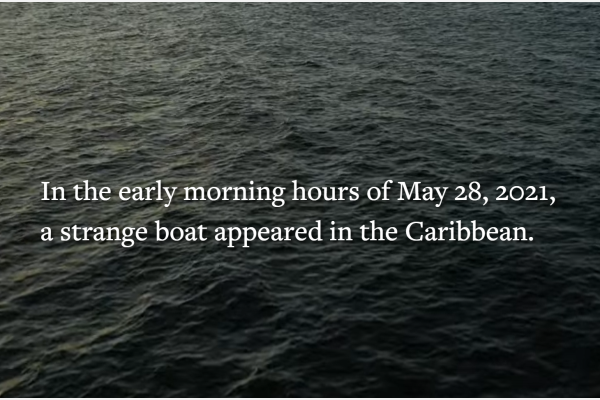Repositorio de Prácticas

Identification of the deceased migrants from Mauritania, related to a shipwrecked vessel found in the coast of Trinidad and Tobago
Secondary GCM Objectives
Fechas
Tipo de práctica
Geographic Scope
País:
Subregión:
Resumen
The case of the shipwrecked vessel found off the island of Tobago in May 2021, with 14 deceased persons' remains, has been closely followed by the ICRC. In response to a request for support from the Ministry of Foreign and CARICOM Affairs of the Republic of Trinidad and Tobago, the ICRC Delegations in Venezuela and Mauritania have mobilized multiple resources to locate and assist the communities and families presumably linked to the event. According to the information available, the vessel would have departed from Nouakchott, Mauritania, with approximately 40 passengers on board, coming from remote and difficult to access locations. The ICRC contacted and visited the families whose relatives, potentially, were aboard the shipwrecked boat. The ICRC met these families and collected their Tracing Request and Biological Reference Samples to compare with the genealogical material from the human remains found in Trinidad. A total of 51 samples were collected, related to 26 family groups. Subsequently, funds were allocated to cover the processing of the samples by a DNA laboratory that possess a vast experience in the analysis of DNA samples from large-scale events for identification purposes, with which the ICRC has a collaboration agreement. The results of the DNA profiles were shared with the Trinidad and Tobago Forensic Science Centre – the entity with a custody of the deceased recovered from the vessel and in charge of the analysis and identification of the remains. As a result, 7 of the 14 deceased found has already been identified. Currently, the Trinidad and Tobago authorities continue working on issuing the respective documentation to notify the families of the deceased, while the ICRC coordinates a mission to Mauritania to facilitate the transmission of this information to the families concerned. Worldwide, the ICRC supports persons living in uncertainty caused by not knowing the fate and whereabouts of their loved ones; and accompanies the process of searching for the family members who were separated or went missing in the context of armed violence, migration, or other humanitarian emergencies. Helping families to find answers is central to the humanitarian mandate of the ICRC and National Red Cross and Red Crescent Societies. It is within this framework that the ICRC Delegations in Venezuela and Mauritania carry out various activities to support the families of missing persons - including migrants deceased along perilous migratory routes - and to assist the corresponding authorities in the processes in favour of these families.
Organizaciones
Principales organizaciones implementadoras
Des informations détaillées
Organizaciones asociadas/donantes
Beneficio e impacto
This particular experience of the collaboration between the forensic practitioners in Trinidad and Tobago and the ICRC with the families searching for their missing loved ones, allowed to clarify the fate and whereabouts of 7 deceased migrants. While tragic for the migrants concerned and their relatives, this event proved the relevance and a significant impact of joint work oriented at providing the relatives of missing migrants with information and a sense of closure. It also helped to bring attention to the global phenomenon of missing migrants and highlighted the importance of collaboration between humanitarian actors and forensic practitioners in resolving such cases.
Lecciones clave
Recomendaciones(para replicar)
Innovación
It proves the importance of multi-stakeholder cooperation, in this case of the ICRC facilitating exchanges between concerned authorities and with families of the missing.
Recursos adicionales
Fecha Enviado:
Más prácticas relacionadas:
- Comité de Familiares de Migrantes Desaparecidos de el Progreso, Yoro, Honduras, COFAMIPRO 25 años dando la lucha en la búsqueda de personas migrantes
- Identification of the deceased migrants from Mauritania, related to a shipwrecked vessel found in the coast of Trinidad and Tobago
- Desplazamiento interno, migración y retorno en la frontera norte de México: Una perspectiva desde 12 ciudades
- Operativos de regularización migratoria con abordaje territorial
- Unidad de Integración Migratoria de la Superintendencia Nacional de Migraciones (MIGRACIONES) en el Perú
Comentarios de los revisores pares:
*Todas las referencias a Kosovo deben entenderse en el contexto de la Resolución 1244 [1999] del Consejo de Seguridad de las Naciones Unidas.
Newsletter
Subscribe to our newsletter.